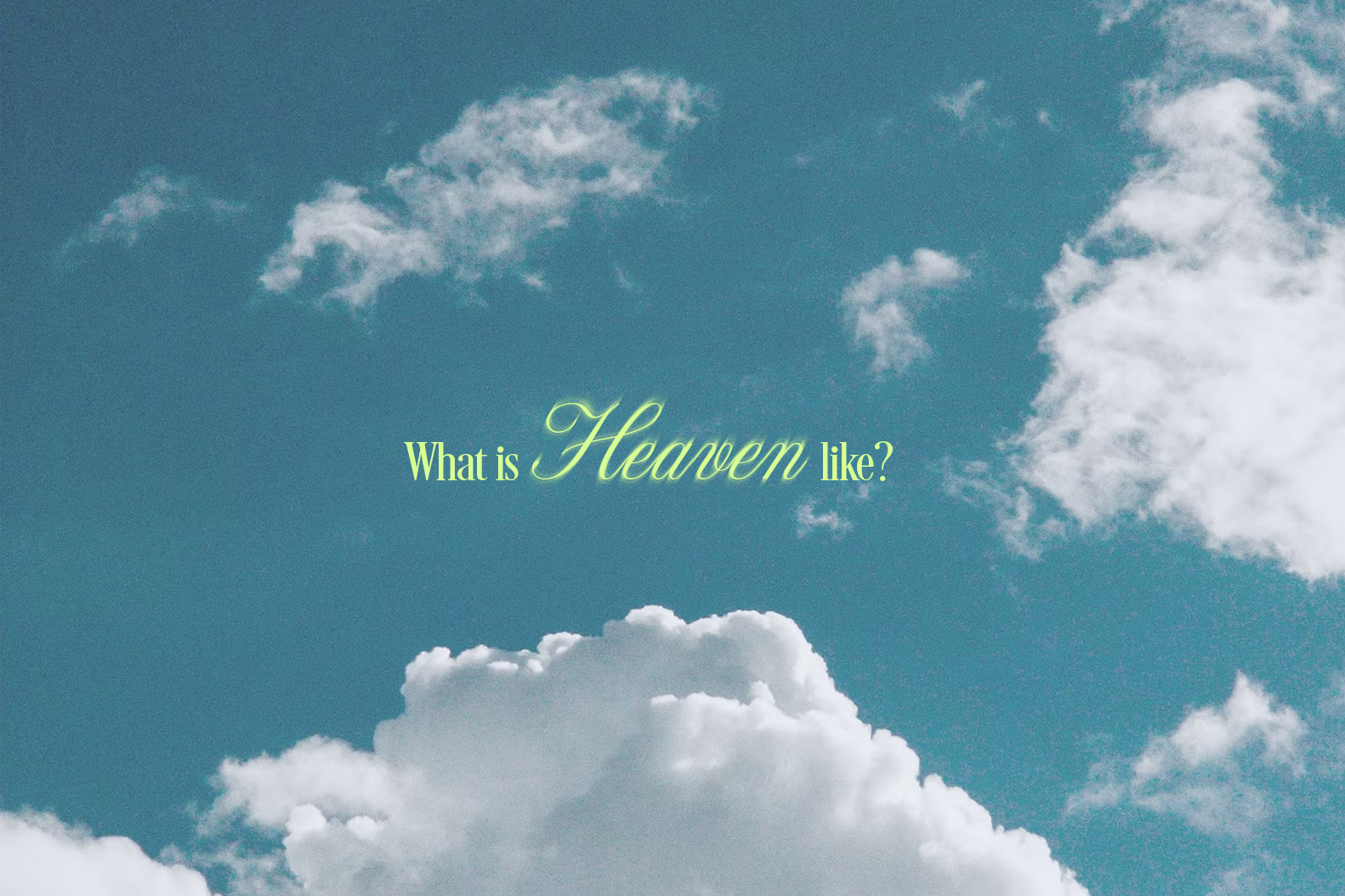When it comes to just how different societies on earth function, it is sadly evident that they are all very far from ideal. This is due to our sin and unrighteousness (Romans 3:10-12)
Indeed, in our human societies, it is common for people to do what is right in their own eyes (Judges 21), rather than according to how God created us to be. This often causes chaos, disorder and injustice to reign.
However, in this piece, I want to envision, from a biblical perspective, what a truly heavenly society would be like – a conception of what Martin Luther King Jr famously called “the beloved community“.
We know that such a society would certainly be full of God; the love of the Father, the fellowship of the Son, Jesus Christ, and the power of the Holy Spirit will be there throughout. But in the details, how would that pan out?
Here, I would like to offer a few traits of what such a society, or a “beloved community”, might look like.
There will be obedience from the heart
There’s an interesting question that I’ll pose here: do gang members usually stop at traffic lights when they turn red? Most likely, they will probably do so. This begs the next question, why do they do so?
It’s unlikely that, if they were gang members, they are truly being guided by a law-abiding or even peace-loving spirit when doing so.
More likely, they just think the cost of breaking traffic laws is not worth it, or they don’t want to be run over by a car.

I raised this example to demonstrate that most people behave themselves primarily to avoid trouble, rather than out of a sincere desire to pursue what is good.
It is an example that also points out an important reality concerning human nature that the Bible addresses, one that isn’t just about obedience or disobedience to God’s ways on a surface level but about the underlying spiritual condition behind all that we do.
The Bible repeatedly points us to God’s law in different ways, whether in the Ten Commandments, Levitical laws or even in many of the teachings directly from Jesus’ mouth. There are also consistent warnings against sin throughout Scripture.
At the same time, this does not mean that the Bible is primarily a rule book on how to follow God and His instructions to us. Scripture digs deeper; the living Word of God transforms us from the inside out to have hearts that truly seek after God and not just obey Him because we “have to”.
This is why Paul tells us in the book of Romans that no person can be justified before God simply through works of the law (Romans 3:20), and that we should live by the Spirit rather than by our own flesh (Romans 8:13).
To truly act and live righteously in a way that pleases God, we must be renewed from within – external incentives to avoid sin and do the right thing is not enough.
Ultimately, we can look to Jeremiah 31:33 to get a stronger glimpse of this truth. Here, the Lord declares that He will put His law within us, and place it inside our hearts. This is something also spoken about in Hebrews 8, where the author describes how the New Covenant will function.
This means that there will be no need for man-made systems of law enforcement to enforce the rule of law – because the rule of law will be perfectly upheld from within the hearts of all its citizens.
Nor will we need others to tell us externally what to do; we will willingly view God and His directions as the light for our path (Psalm 119:105) and our reverence for Him will be the source of our wisdom (Proverbs 1:7)!
There will be equality of all people
Circling back to Jeremiah 31:34 (which is also referred to in Hebrews 8), there is the promise that in the future Kingdom, all people, “from the least of them to the greatest” will know the Lord. There, all will live forgiven by the Lord and free from sin and iniquity.
Here, we see the promise that, under the cover of an all-powerful, righteous and compassionate God, all human beings stand equal, and all can know Him in the same way.

This is also the reason why Paul states in Galatians 3:28, that there is neither male nor female, Jew nor Greek and slave nor free in Christ, since we all stand equal under His lordship.
This statement is especially astounding when you consider how the Greco-Roman world of that time was entirely entrenched by rigid social hierarchies.
All human beings are made in the image of God. This should be what defines the worth of any human, more so than gender, race, age, cultural background, educational qualifications, financial status or any other form of categorisation.
We are meant to look up to our creator God together, worshipping Him together and serving Him in unison. Sadly, we have instead opted for systems where human beings set themselves up as gods to dominate other humans.
I once heard a respected historian say that there are two primary ways a society can structure its people:
The first option is a society where all people can be recognised as equal; they fundamentally have dignity as human beings and their rights are secured by law.
The second option is to intentionally prioritise a specific subset within society to be privileged, and to let them dominate over everyone else in an unequal manner.

It is a sad reality that most societies throughout human history have followed the model of the section option. It is not because God wanted it this way, but down to the sinful pride of humans.
In George Orwell’s Animal Farm, there is a famous line that goes “all animals are equal, but some animals are more equal than others”.
But in the beloved community of God’s Kingdom, we will all be truly treated with equal worth and dignity – as we together submit in unison to the rightful King of Kings and Lord of Lords!
There will be abundance
Former US President Lyndon B. Johnson, who designed very ambitious anti-poverty government programmes called the Great Society, once articulated these rather audacious hopes all the way back in 1964: “…where there would be abundance and liberty for all; a total end to poverty and racial injustice, where every child would find knowledge, where the desire for beauty and hunger for community would always be met, and where we all honour creation for its own sake.”
As idealistic and positive as those goals appear, it appears that no society in our world has ever been able to truly fulfil them.
What this shows is that, even in a world (and a universe) that God originally made to be abundant, there is strangely (and tragically) so much that we lack if all people are to truly flourish.
One Christian author made an thoughtful point, based on another well-known theologian’s insights, in a video I once saw.
He pointed out that ancient Egypt in Exodus – one of the main archetypes of earthly, ungodly kingdoms as opposed to the true Kingdom of God – operated out of a scarcity mindset.
It was this scarcity mindset that made the Egyptian Pharaohs feel threatened and insecure at seeing the descendants of Joseph (and his brothers) increase in number, ultimately leading to their cruel enslavement.
Now contrast this with the picture of divine rule promised in Isaiah 9:7: “Of the greatness of his government and peace there will be no end. He will reign on David’s throne and over his kingdom, establishing and upholding it with justice and righteousness from that time on and forever. The zeal of the Lord Almighty will accomplish this.”
God’s Kingdom will be ruled perfectly and filled with shalom, a peace that brings wholeness in every sense.
The Christian intellectual Christopher Watkin, in his book Biblical Critical Theory, argued that God’s Kingdom is characterised by “superabundance”.
The basic idea is that all of its members will always have more than enough to not just have their needs met, but to be able to fully flourish in all the ways that matter.
Watkin also made a point that while societies in this world are fixated on all the “technical” methods and solutions to achieve flourishing (defined by our human standards), God’s Kingdom is better defined as “bountiful” – where the necessary ingredients of our human flourishing are freely available out of the power and compassion of an infinitely glorious God.
…God will one day wipe away every tear.
Ultimately, we should remember that the promise of abundance in this coming Kingdom comes from a King who gave us the greatest gift of abundance — His very life as a sacrifice upon on a cross, before His resurrection from the dead to defeat sin, death and the powers of darkness.
Through that, He has lavished on us the riches of his grace (Ephesians 1:7-8) – which is the abundance that truly satisfies!
God will make everything new
“And I heard a loud voice from the throne saying, “Look! God’s dwelling place is now among the people, and he will dwell with them. They will be his people, and God himself will be with them and be their God. ‘He will wipe every tear from their eyes. There will be no more death’ or mourning or crying or pain, for the old order of things has passed away.”
He who was seated on the throne said, “I am making everything new!” Then he said, “Write this down, for these words are trustworthy and true.:”” (Revelation 21:3-5)
To close, I’d like to highlight these three verses, which occur towards the end of the entire Bible in the book of Revelation, that give valuable insight about what a truly heavenly society and a proper “beloved community” looks like.
Firstly, verse 3 teaches us the momentous truth that, one day, God’s dwelling place will be with all people! In the new heaven and new earth, it will be God’s presence, rather than human effort, that anchors everything.
Secondly, there is the beautiful promise that God will one day wipe away every tear. There will be no more suffering or pain — which is sadly so prevalent in our present world — because by our Saviour’s wounds we have ultimate healing (Isaiah 53:5)!

Lastly, we can be confident that our God will make all things new.
Just as God makes us into a new creation when we come to know Him (2 Corinthians 5:17), He will make a new heaven and a new earth.
In response to this, while we still live in the midst of a society and a world that still has many problems – may we continue to live in light of a heavenly country, better than any country on earth, that God has prepared for us (Hebrews 11:16)!










